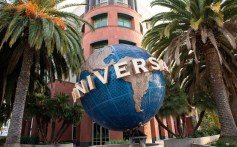earnings
Trending on Billboard
The release of CTS Eventim’s third-quarter results on Thursday (Nov. 20) marked the last earnings report from a major music company until early 2026 (a few smaller companies tend to announce much later), meaning it’s time for Billboard’s awards-style recap running down the best and worst of the bunch.
Music companies generally had a good quarter. Live Nation set yet another record for third-quarter revenue. Spotify delivered the double-digit revenue growth people have come to expect. K-pop companies delivered strong revenue growth, although earnings usually didn’t keep pace.
Related
In a rare occurrence, a handful of music streaming companies actually posted revenue declines. China’s Netease Cloud Music was down 2%, Deezer was off by 1% and LiveOne, hobbled by changes at Tesla, fell 42%.
Aside from the financial numbers, AI gave companies a great deal to talk about. Universal Music Group and Warner Music Group took the force-multiplier approach by announcing major AI licensing deals a day before they released earnings. Each company went into their conference calls with analysts in the immediate wake of a positive development on a hot-button topic: Recently signed agreements with AI music generator Udio, which will turn into a rights holder-friendly walled garden when it re-launches in early 2026.
For more details, check out Billboard‘s recap of all music companies’ earnings results released through Nov. 21.
Without further ado, here are the highlights from the latest round of earnings results.
Related
Greatest Progress on a Business Model: Sphere Entertainment Co.
It’s not difficult to find a critic of Sphere, the massive, spherical venue in Las Vegas with huge production costs and a mountain of debt, as sustained profits are a long-term project and aren’t likely to appear until Sphere franchises open in Abu Dhabi and other markets. Still, Sphere Entertainment Co. — which also includes MSG Networks — made progress in the third quarter. Sphere landed a hit with its AI-assisted update of The Wizard of Oz, which has sold over 1 million tickets to date at an average price analysts put at well over $100. Showings of Oz and other movies rose to 220 from 207 in the prior-year quarter, and a winning residency from Backstreet Boys helped the Sphere division turn a negative adjusted operating income (AOI) into $36 million of positive AOI.
Best Revenue Growth Rate, All Companies: YG Entertainment
Third quarter revenue jumped 107% to $128 million for the company behind such K-pop groups as BLACKPINK and BABYMONSTER, beating out fellow K-pop company JYP Entertainment, which topped the list last quarter with a 126% year-over-year growth rate. Because K-pop companies focus their resources on relatively small rosters, their financial results tend to have greater volatility than Western companies with far more artists under their roofs. Revenue rises and falls based on the success of a handful of new albums and tours.
Best Revenue Growth Rate, Digital Service Providers: Tencent Music Entertainment
Online music revenue jumped 27.2% to $979 million as the number of paying users rose 5.6% to 125.7 million. Tencent Music didn’t break out the number of subscribers to its high-priced Super VIP tier — it’s been at 15 million for a few quarters — but the quarter’s 10.2% increase in average revenue per user suggests that Super VIP made a positive impact.
Related
Best Stock Price Bump: SiriusXM
SiriusXM shares jumped 10% the day the company released earnings — not because of the results, but because the company raised its full-year guidance for revenue, adjusted EBITDA and free cash flow by $25 million. The satellite radio company, which also owns streaming brand Pandora, is trying to manage declining subscribers and a soft advertising market by cutting costs. The plan mostly worked in the third quarter as SiriusXM’s adjusted EBITDA fell just 2.5% to $676 million, and revenue fell 1%. Net cash from operating activities jumped to $430 million from $309 million in the prior-year period.
Worst Stock Price Drop: StubHub
The secondary ticketing company went public on Sept. 17 and released its first earnings report on Nov. 13. Revenue was up 11% year over year — it would have risen 24% if not for Taylor Swift ticket sales in 2024 — but the company didn’t issue guidance for the fourth quarter. Investors reacted as if StubHub was hiding bad news, and the share price dropped as much as 31% the following morning and finished the day down 21%. Right on cue, news broke on Monday (Nov. 17) that the U.K. government plans to ban the resale of tickets at a profit, causing StubHub’s stock to drop an additional 30.7% over the next four days.
Best Attempt at Earnings Call Levity: Spotify
Spotify co-founder and CEO Daniel Ek is stepping down as CEO and will be replaced by co-CEOs Gustav Söderström and Alex Norström, who are currently co-presidents. As Ek explained when the company released third-quarter results, the Nov. 4 earnings call would mark his final such appearance before he transitioned to the position of executive chairman. At the end of his introductory remarks, Ek then turned the call over to Norström. “Thanks, Daniel,” Norström said. “No pressure.”
Worst Quarter: Vivid Seats
The secondary ticketing company’s revenue plummeted 27% to $137 million and adjusted EBITDA fell to $4.9 million from $34.1 million in the prior-year quarter. The news sent the Chicago-based company’s share price down 11.3% in a single day. But Vivid Seats is taking steps to improve: It replaced CEO Stan Chia with Lawrence Fey, who was previously CFO; doubled its annualized cost-savings target to $60 million; and “simplified” its corporate structure “to maximize our operating efficiency,” the company stated in a press release. On a positive note, the news about the U.K. government’s intention to limit ticket resales to face value doesn’t hurt Vivid Seats, which has international aspirations but gets virtually all its revenue from North America.
Trending on Billboard
Warner Music Group (WMG) reported a 23% decline in annual profit for the fiscal year ending Sept. 30 on Thursday (Nov. 20), as restructuring costs and the end of the company’s BMG distribution deal weighed on revenue.
However, executives struck an optimistic tone during their earnings presentation, pointing to higher publishing and recorded music revenue, driven by subscription streaming growth, as evidence that their cost-cutting and reinvestment strategy was working.
Related
WMG’s share price fell 2.66% on Thursday to $29.69. However, analysts at Guggenheim Partners, who have rated WMG a buy over the past few quarters, wrote in a note to investors that the company’s subscription streaming revenue and growth forecast is “encouraging.”
“We modestly raise our [full year 2026] revenue … estimates primarily reflecting higher subscription revenue as a result of pricing adjustments,” Michael Morris, equity analyst at Guggenheim, wrote on Thursday.
Here are a few of the highlights from WMG’s earnings presentation and filings.
Digital music revenue growth and market share improvement
WMG’s digital income improved by 3% in the year, helped by two straight quarters of recorded music streaming growth. Music subscription streaming rose by 8.5% during the quarter. Ad-supported streaming grew by 3%.
Related
This was driven by hits from sombr, whose “Back to Friends” has spent 33 weeks on the Billboard Hot 100, Cardi B’s Am I The Drama?, which has spent the past two months on the Billboard 200, and Twenty One Pilots, whose Breach had the best debut week for a rock album in six years.
On an earnings call, WMG CEO Robert Kyncl noted that the company’s share of the Spotify Top 200 grew “by around 6 percentage points versus fiscal 2024” and that it “had the No. 2 market share” for the full quarter.
Meeting savings goals by using AI for dealmaking
WMG is on track to meet its goal of cutting internal costs by $200 million in 2026 and $300 million in 2027, said Armin Zerza, WMG’s CFO. Because the company is investing more in front-line artist development and key regions and genres, Zerza added, it has focused on savings in back-office functions.
In addition to introducing the cloud-based finance software SAP in Zerza’s department and using data to tailor marketing spend, WMG is working with an AI company to help “optimize” its mergers and acquisitions strategy, Zerza added.
Related
Ultimately, the company’s cost savings plan, along with other growth, is expected to drive a 150 to 200 basis point improvement in WMG’s adjusted operating income before depreciation and amortization (OIBDA) margins.
Details on the Tempo and Bain Deals
WMG’s February acquisition of 50.1% of Tempo Music was for a “consideration of $77 million, including transaction costs,” and it included the option to buy out the remainder of Tempo for $73 million before the end of November 2027, according to an SEC filing released Thursday. That acquisition saw WMG recognize $351 million in publishing copyrights and $88 million in recorded music catalogs, along with $13 million in cash and other assets. Also included in the acquisition was $311 million of asset-backed securities secured by some of Tempo’s catalog, according to the filing. The Tempo catalog includes rights to songs by Wiz Khalifa, Florida Georgia Line and Brett James.
Additionally, Warner disclosed in filings that as part of the joint venture it announced in June to acquire catalogs with Bain, it secured a $500 million line of credit.
Zerza said during the earnings presentation that WMG’s joint venture with Bain has a robust pipeline of deals they expect to begin announcing in 2026.
Trending on Billboard CTS Eventim, Europe’s largest concert promoter and ticketing service, posted revenue and earnings gains in the third quarter despite what it called “challenging economic conditions” in its home market, Germany. Companywide adjusted earnings before interest, taxes, depreciation and amortization (EBITDA) rose 13.8% to 137.3 million euros ($161 million) on revenue of 854.2 […]
Trending on Billboard Warner Music Group reported a 23% decline in annual profit for the fiscal year ending Sept. 30 as the termination of BMG’s distribution agreement resulted in lower revenue, though higher publishing and recorded music revenues bolstered annual revenues. WMG’s net income for the 12 months ending Sept. 30 fell to $370 million […]
Trending on Billboard
A flurry of earnings reports for the quarter ended Sept. 30 show a continued divide in the music landscape. Live music companies such as Live Nation and MSG Entertainment posted double-digit growth as concert demand surged, while HYBE and SM Entertainment also benefitted from strong concert revenues. Streaming also spiked once again, pushing Spotify and Universal Music Group (UMG) to double-digit revenue growth. Legacy media didn’t fare as well, however: iHeartMedia revenue slipped slightly, while SiriusXM leveraged cost-cutting to compensate for flat revenue.
Here’s a running list, in alphabetical order, of the music companies that released earnings results (as of Nov. 11) for the quarter ended Sept 30, 2025.
Related
Cumulus Media: The radio company’s revenue fell 11.5% to $180.3 million and net loss grew to $20.4 million from $10.3 million in the prior-year quarter. The advertising business remains “challenging for legacy media,” CEO Mary Berner said. Broadcast radio revenue sank 17.2% to $115.0 million. Digital revenue fell 2.6% to $39.0 million, though it was up 8.4% if the loss of The Daily Wire and Dan Bongino aren’t counted. Check out our full radio earnings roundup here.
Deezer: Revenue dropped 1% to $154 million as gains from self-paying users almost offset losses in business-to-business subscribers. Direct subscribers grew in number to 5.5 million, up nearly 10%, and direct subscription revenue increased 1.6% to $103 million. Revenue from partnerships fell 12.6% to $42 million and subscribers from these partnerships dropped 24.5% from the prior-year quarter. Go to the full article for more details.
HYBE: Tours by BTS member Jin and groups SEVENTEEN and TOMORROW X TOGETHER helped Q3 revenue rise 38% to $519 million, as strong concert revenue ($174 million) helped make up for recorded music’s 11.5% decline to $136 million. Operating loss was $30 million, a big turnaround from a $40 million operating profit a year earlier. More details in the full article.
iHeartMedia: CEO Bob Pittman was “pleased” with the performance and boasted of new partnerships with TikTok and Amazon Ads, which will expand the company’s podcast and advertising businesses, respectively. Revenue of $997 million was down 1.1% (up 2.8% excluding the prior-year period’s political advertising). Adjusted EBITDA was flat at $205 million. Podcast revenue jumped 22% to $140 million while the multi-platform group, which included broadcast radio, fell 5% to $591 million. Q4 guidance is a low-single-digit revenue decline. Find more details here.
Live Nation: As fans packed themselves into stadiums in record numbers, revenue rose 11% to $8.5 billion and adjusted operating income (AOI) grew 14% to $1.03 billion. Concerts revenue was up 11% to $7.3 billion. Ticketing revenue rose 15% to $798 million. Sponsorships revenue jumped 13% to $443 million. Importantly, increases in deferred revenue suggest Live Nation will experience additional growth into 2026. Read about the earnings here and check out Billboard’s follow-up article with additional details from the earnings call.
MSG Entertainment: Boosted by a record number of concerts at the Madison Square Garden arena, MSG Entertainment’s revenue jumped 14% to $158.3 million and adjusted operating income improved to $7.1 million from $1.9 million in the prior-year period. Revenue from concerts rose $8.3 million while sporting events revenue improved $6.8 million. Food and beverage revenue jumped 20%, or $3.9 million. Looking ahead, MSGE’s Christmas Spectacular, the company’s annual holiday production at Radio City Music Hall, is slated for 215 performances, up from 200 a year earlier.
Reservoir Media: Fiscal second quarter revenue of $45.4 million was up 7% organically, or 12% including acquisitions. Net income of $2.2 million was up from $0.2 million in the prior-year quarter. Music publishing revenue rose 8% to $30.9 million, while recorded music revenue jumped 21% to $13.0 million. The results prompted management to adjust upward its forecasts for full-year revenue and adjusted earnings before interest, taxes, depreciation and amortization.
SiriusXM: The satellite radio company’s stock price jumped 10% after it raised 2025 guidance for revenue, EBITDA and cash flow. Although it reported a 1% dip in revenue, the company rebounded from a loss to produce net income of $297 million; while subscriber revenue was down, cost-cutting and layoffs helped offset the decline. Adjusted EBITDA fell 2.5% to $676 million. CEO Jennifer Witz said she is “confident” that improvements will allow the company to reach its target of $1.5 billion of free cash flow by 2027. Check out Billboard’s coverage for more details.
SM Entertainment: Led by concerts and music releases from aespa and NCT WISH, revenue rose 33% to $237.3 million. Operating profit jumped 262% to $35.6 million. Recorded music rose 33% $71.4 million, while new album sales grew to 5.42 million from 3.61 million in the third quarter of 2024. And concert revenue rose 38% to $38.7 million despite the company having fewer concerts compared to the prior-year period. Go to the full article for more info.
Sony Music: Rising streaming income and the success of the anime series Demon Slayer: Kimetsu no Yaiba Infinity Castle helped Sony Music’s revenue jump 21% to $3.65 billion and operating income climb 28% to $776 million. Overall streaming revenues rose 12% in recorded music and 25% in the publishing division. Physical sales rose 6%. Looking ahead, Sony increased its full-year forecast for Sony Music’s sales by 6% to $13.3 billion. The full article has all the details.
Sphere Entertainment Co.: The Wizard of Oz and the Backstreet Boys boosted Sphere parent company’s revenue to $263 million and helped turn negative adjusted operating income (AOI) into $36 million of positive AOI. Oz has sold more than 1 million tickets to date, and showings of that title and other movies rose to 220 from 207 in the prior-year quarter. The Sphere segment itself posted an operating loss of $84 million — a $40 million improvement from a year ago. More details in the full article.
Spotify: The audio giant’s subscribers rose 12% to 281 million and gross margin improved by 56 basis points — 0.56 of a point — to 31.6%. Those improvements led revenue to increase 12% to $5 billion and gross profit to grow 9% to $1.84 billion. “We have the tools we need — pricing, product innovation, operational leverage, and eventually the ads turnaround — to deliver both revenue growth and profit expansion,” said CEO Daniel Ek. Check out our full story on the earnings release and our follow-up article with details from the earnings call.
Universal Music Group: In another strong quarter, UMG posted a 10.2% revenue gain (in constant currency) to $3.5 billion. EBITDA rose 11.6% (also in constant currency) to $694 million and EBITDA margin ticked up to 22.0% from 21.6%. Recorded music subscription revenue, a closely watched metric, rose 8.6% while other streaming revenue was flat at $394 million. Go to the full article for all the details and check out the follow-up article for more insights.
Trending on Billboard
Radio companies had mixed results in the third quarter in their efforts to build digital businesses, cut costs and manage a decline in broadcast advertising dollars as consumers shift to newer entertainment platforms.
iHeartMedia’s consolidated revenue of $997 million was down just 1.1%, well within the company’s guidance of a low single-digit decline. Excluding the impact of political advertising in the prior-year period, revenue was up 2.8%. CEO Bob Pittman said during the company’s earnings call on Monday (Nov. 10) that the advertising environment is “pretty good” and iHeartMedia is “not feeling anything” related to the U.S. government shutdown.
Related
An operating loss of $116 million stemmed from a $209 million impairment charge related to the value of iHeartMedia’s FCC licenses. Excluding the impact of the write-down and other extraordinary items, adjusted earnings before interest, taxes, depreciation and amortization (EBITDA), a common measure of profitability from ongoing operations, was flat at $205 million.
The multi-platform division, which includes iHeartMedia’s broadcast and network businesses, had revenue of $591 million, down 4.6% due to lower political advertising and what the company called “uncertain market conditions.” Adjusted EBITDA of $119.2 million marked an 8.3% decrease from the prior-year period, despite lower employee compensation costs.
The digital audio group, which includes podcasts, had revenue of $342 million, up 14%, and adjusted EBITDA of $130.3 million, up 30.3%. Podcast revenue increased by 22% to $140 million.
Based on trends for the top advertisers and advertising agencies, Pittman said he has “confidence” that the multi-platform division will return to revenue growth. “We’re feeling similar momentum to what other ad-supported companies have discussed right now: Spending is holding up, and discussions with advertisers are positive,” he noted on the company’s earnings call. Although iHeartMedia has not felt any impact from the government shutdown, Pittman conceded it “does add a level of uncertainty.”
Related
iHeartMedia said it remains on track to create $150 million in annual cost savings in 2025. In addition, the company took steps in the third quarter to save an additional $50 million in 2026, which COO/CFO Rich Bressler said will come mainly from the multi-platform division.
Looking ahead, iHeartMedia expects fourth quarter revenue to be down in the low single digits. Adjusted EBITDA is expected to be $200 million to $240 million, down from $246 million in the prior-year quarter because of political advertising in the 2024 election year. The multi-platform division is expected to be down in the low single digits. Digital revenue is expected to grow in the high single digits, and podcast revenue specifically is expected to grow in the mid-teens.
Cumulus Media, the country’s third-largest radio broadcaster by revenue, reported that third-quarter revenue fell 11.5% to $180.3 million. CEO Mary Berner cited a “challenging” advertising environment and touted Cumulus’s efforts to cut costs and employ AI to improve efficiency. Broadcast revenue plummeted 17.2% to $115.0 million. Digital revenue fell 2.6% to $39.0 million but would have grown 8.4% without the losses of The Daily Wire and conservative commentator Dan Bongino, who left podcasting to become the deputy director of the FBI. Consolidated adjusted EBITDA fell to $16.7 million from $24.1 million a year earlier.
Related
Townsquare Media faced “numerous headwinds,” CEO Bill Wilson said in a statement, but the company met its previous guidance on revenue and adjusted EBITDA. Revenue dropped 7.4% to $106.8 million and would have dropped 4.5% if political advertising were excluded. Adjusted EBITDA fell 13.5% to $3.4 million.
iHeartMedia shares fell 6.0% to $4.29 on Tuesday (Nov. 11) following the earnings announcement on Monday afternoon. The stock had jumped 55.9% in the week ended Nov. 7 following a report that the company was in talks with Netflix to distribute its podcast content.
Cumulus Media shares soared 31% to $0.135 the day after the company released earnings on Oct. 30. The stock has since lost all of those gains and more, however, and closed at $0.10 on Tuesday (Nov. 11).
Townsquare Media shares fell 11.3% to $5.42 on Monday following the quarterly earnings report. The stock rose 0.6% to $5.45 on Tuesday.
Trending on Billboard Sony Music reported record-high quarterly earnings on Tuesday and its Tokyo-based parent company raised its overall annual earnings forecast, as rising streaming income and the success of the anime series Demon Slayer: Kimetsu no Yaiba Infinity Castle made the music segment a standout success for the Japanese conglomerate. Overall sales for Sony […]
Trending on Billboard K-pop music giant HYBE said on Monday that concerts by BTS member Jin, SEVENTEEN and TOMORROW X TOGETHER helped drive its third quarter revenues up 38%, but lagging album sales contributed to an overall unprofitable quarter. Operating profit, which measures a company’s total core business earnings after interest and tax are taken out, […]
Trending on Billboard
Led by concerts and music releases from aespa and NCT WISH, SM Entertainment revenue rose to 321.6 billion KRW ($237.3 million), up 32.8% from the prior year period, in the third quarter of 2025, the company announced Thursday. Operating profit jumped 262% to 48.2 billion KRW ($35.6 million) and net income soared 1,100% to 44.7 billion KRW ($33 million).
“In this quarter…our leading artists have continued to prove their solid capabilities while new IPs are growing rapidly and adding fresh energy to the company,” CEO Cheol-hyuk Jang said during Thursday’s earnings call. “This generational synergy further reinforces the foundation of our IP portfolio, exemplifying the virtuous cycle of a sustainable IP ecosystem that SM Entertainment aims to build.”
Related
Recorded music rose 32.7% to 96.7 billion KRW ($71.4 million). New album sales grew to 5.42 million from 3.61 million in the third quarter of 2024. NCT WISH’S COLOR – The 3rd Mini Album, sold 1.48 million units while aespa’s 6th mini album, Rich Man, sold 1.13 million units. SM Entertainment does not break out streaming performance.
Concert revenue rose 37.5% to 52.5 billion KRW ($38.7 million) despite SM Entertainment having fewer concerts compared to the prior-year period. RIIZE’s RIIZING LOUD tour had 20 shows during the quarter in Seoul, Japan, and Hong Kong. NCT DREAM performed 8 concerts in Seoul and Thailand. Super Junior had 6 shows in Seoul, Hong Kong and Indonesia.
Merchandise and licensing revenue rose 32.8% to 50.3 billion KRW ($37.1 million) on the strength of concert merchandise and pop-up retail stores. The company cited aespa’s concert merchandise and light stick sales and pop-up stores from aespa, NCT WISH and Super Junior.
Looking ahead, Jang provided details of SMTR25, an “artist incubation project” intended to help SM Entertainment expand globally. SMTR25 has 15 trainees who are taking part in a new reality TV series, Reply High School, that will be released in the first half of 2026. SMTR25 also released an original content series, W.O.W! (Way Outta Walls) a travel series produced with support from the Korean Tourism Organization.
Jang also highlighted the early success of a young SM Entertainment group, Hearts2Hearts. “Within a short period of time, Hearts2Hearts has proven its capabilities across all fronts — musical success, fandom growth, and brand influence — solidifying its position as SM Entertainment’s next-generation global IP,” he said.
Trending on Billboard
Live Nation reported an 11% increase in total revenue in the third quarter on Tuesday (Nov. 4), the result of continued fan demand for live music and a shift to stadiums from amphitheaters and arenas.
On a call with analysts and investors, CEO Michael Rapino and COO Joe Berchtold discussed the finer points of the results. Although it’s only November, all signs point to more growth in revenue, ticket sales, attendance and sponsorships in 2026. Fan demand isn’t falling back to earth any time soon, and Live Nation has made investments — renovations, new venues and acquisitions — to capture as much of that demand as possible.
Related
Here are some of the highlights from the earnings call and Tuesday’s earnings release.
Stadiums Dominated 2025 and Will Be Big Again in 2026
In the concert business, the venue matters. Live Nation’s owned and operated amphitheaters historically generate better margins than other venues, but in 2025, there have been more stadium shows. “A lot of artists decided not to play arenas and amphitheaters and go for stadiums,” said Rapino. In fact, in the third quarter, Live Nation had 250 fewer amphitheater shows and 120 more stadium shows, according to Berchtold. But because Live Nation operates some of those stadiums — such as Rogers Stadium in Toronto and Estadio GNP in Mexico City — those shows boosted the quarter’s per-fan profitability, Berchtold said.
With the FIFA World Cup taking place in the U.S., Canada and Mexico in the summer of 2026, there have been some concerns that soccer matches would limit stadiums’ availability and put a damper on North America tours. But those fears “haven’t seemed to come to life,” Rapino said, adding that stadiums should have “a very strong year [in 2026].”
Related
Fans Keep Spending
People may be suffering through nagging inflation and feeling economic jitters, but music fans are proving to be a resilient bunch, as per-fan spending at Live Nation’s owned and operated venues rose 8% through October. Part of the growth comes down to offering the right products. Non-alcoholic drink sales were up by 20%, and ready-to-drink options were up, too. The growth can also be attributed to renovations at amphitheaters that created VIP areas with premium food and beverage options.
Amidst the growing importance of VIP options to Live Nation’s business, the company said it’s not seeing any pullback from lower income brackets. “No, we have not seen any of that,” Rapino said when asked by Citi analyst Jason Bazinet if there was evidence of “bimodal” consumer behavior. Many shows for 2026 are already on sale, Rapino noted, and the company saw “no pull-back anywhere.”
More Gains into the Fourth Quarter and 2026
The fourth quarter and 2026 are expected to continue the trends seen in the first three quarters of 2025. Deferred revenue — money collected but not yet recognized as revenue for accounting purposes — is an important metric for assessing demand for upcoming events. Live Nation’s deferred revenue is up big from a year earlier: Event-related deferred revenue of $3.5 billion was up 37% from the prior-year period, and Ticketmaster’s deferred revenue of $231 million was up 30%. In addition, Live Nation says its large venue show pipeline for 2026 is up by double-digits, and ticket sales for concerts in 2026 have already reached 26 million. Sponsorship commitments for 2026 are up double-digits, too, according to the company.
Related
An International Tipping Point is Coming
Fans at international concerts are on track to surpass U.S. fans, the company revealed on Tuesday. In fact, international business is driving Live Nation’s growth. Whereas total fee-bearing gross transaction value (GTV) was up 7%, it rose 16% in international markets. And of the 26.5 million net new tickets from Ticketmaster enterprise clients, 70% came from outside the U.S. Additionally, more than half of the 5 million fans expected to attend concerts at Live Nation’s large (over 3,000 capacity) venues in 2026 will come from international markets.
Confidence in the Federal Antitrust Lawsuit
The U.S. Department of Justice’s lawsuit against Live Nation and Ticketmaster is set to go to trial on March 6. While the company’s latest quarterly SEC filing admits the case “could involve significant monetary costs or penalties,” its executives are publicly confident the lawsuit won’t lead to a nuclear option: namely, breaking up Live Nation and Ticketmaster. Berchtold pointed to the remedies decision in September in the Department of Justice’s case against Google, which aimed to restore competition in the internet search and search advertising markets. The court placed certain remedies on Google — a ban on exclusive distribution of Google Search and Chrome, for example — but didn’t break up the company. To Live Nation, the decision “very much validated our view that the claims in our case can’t lead to a breakup of Live Nation and Ticketmaster even if the DOJ prevails on one claim or another,” said Berchtold.

 State Champ Radio
State Champ Radio 









